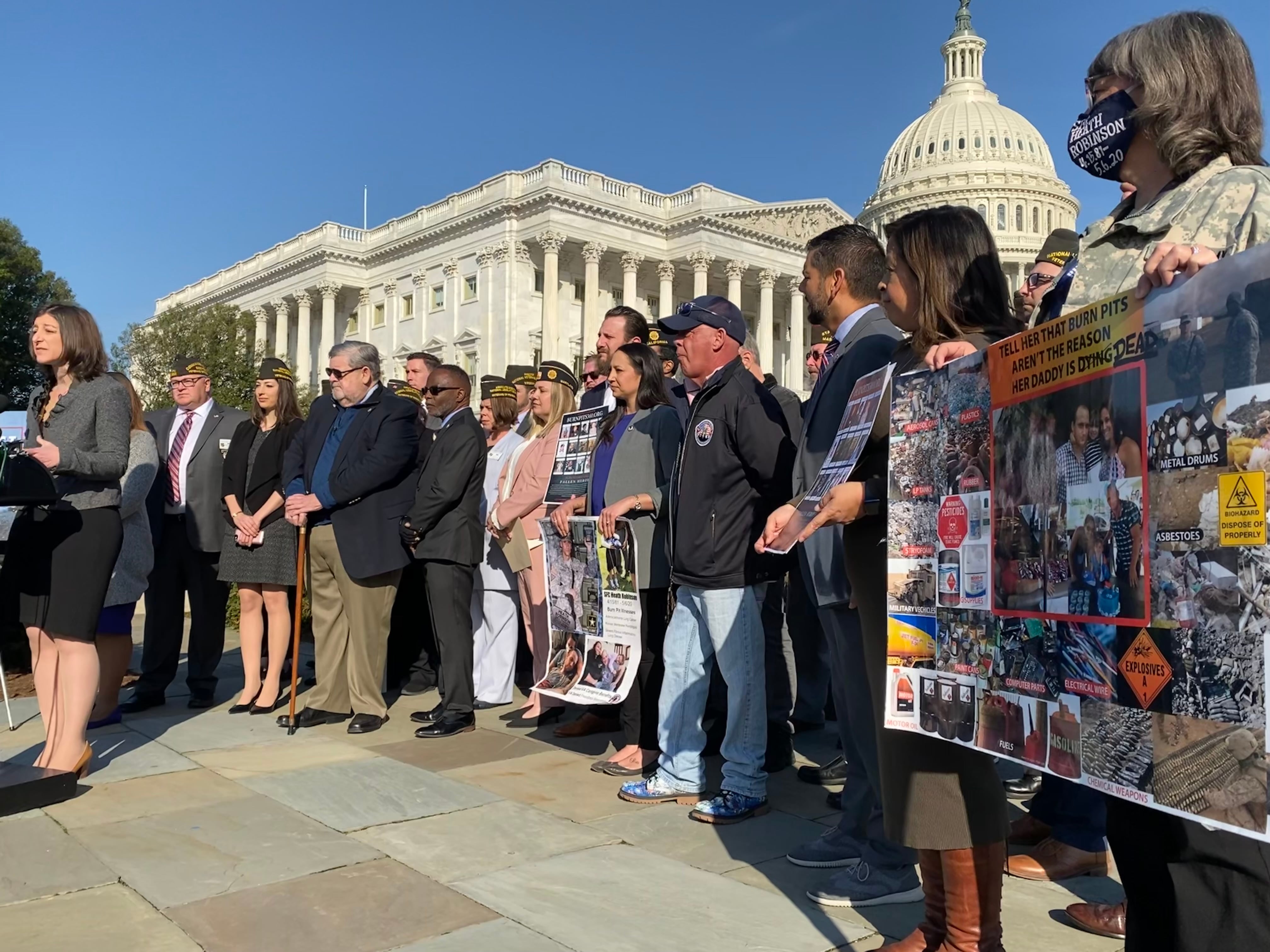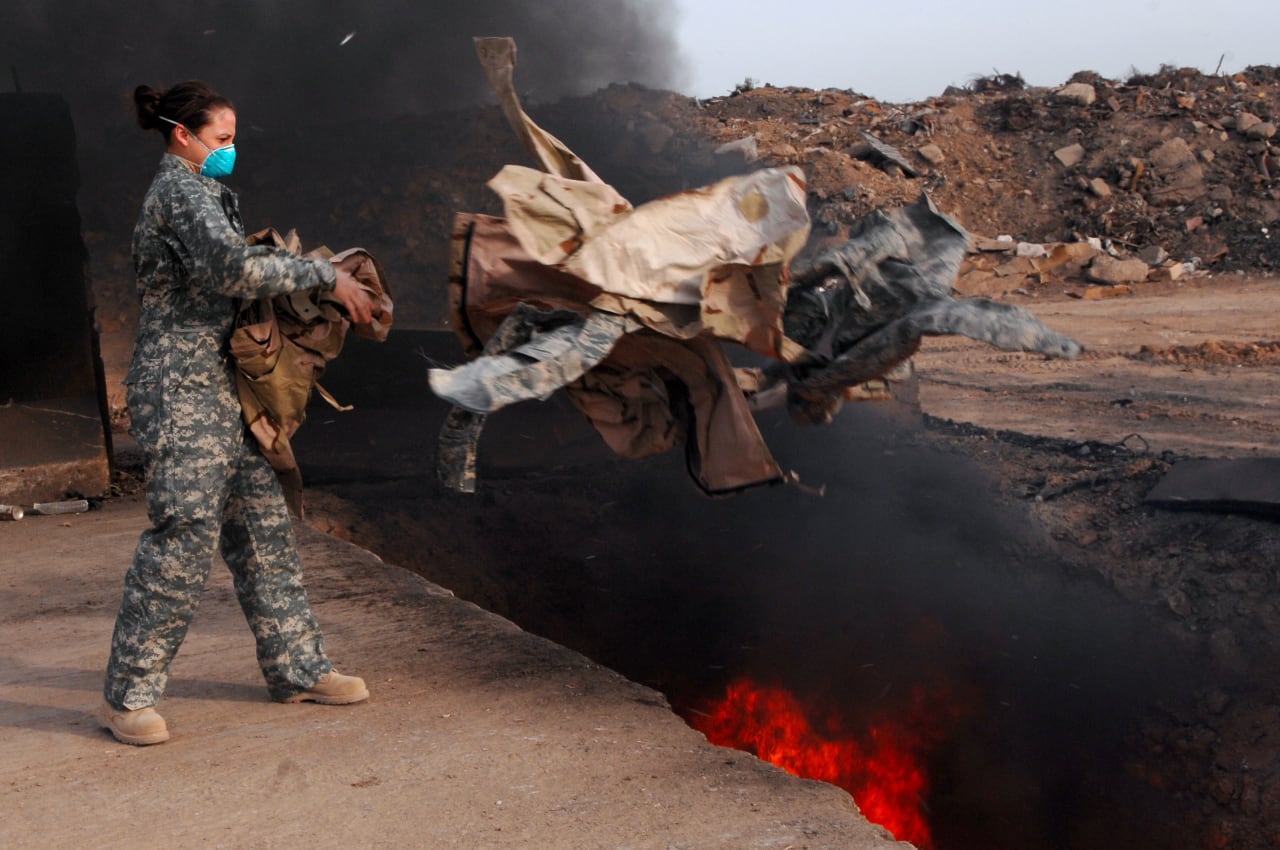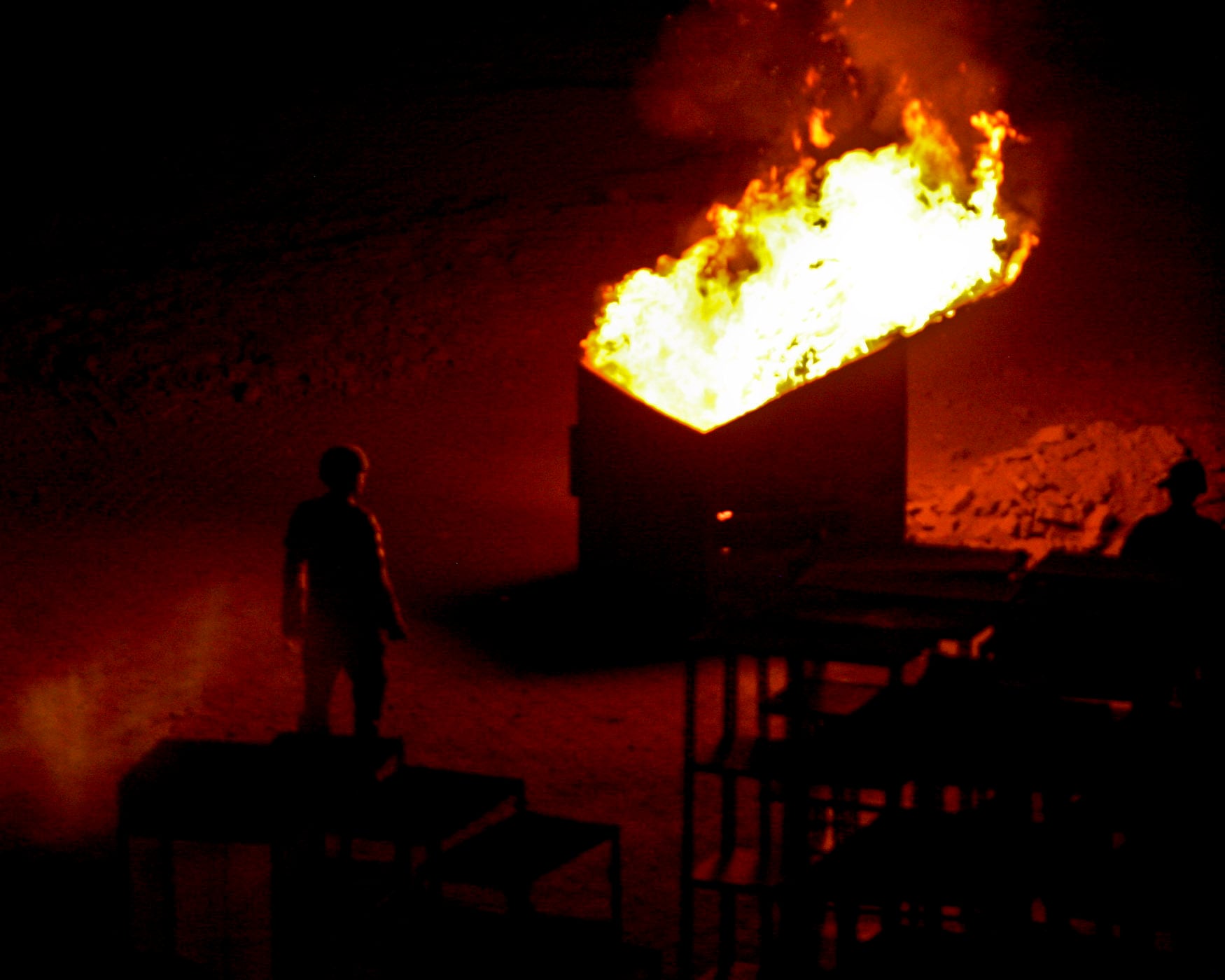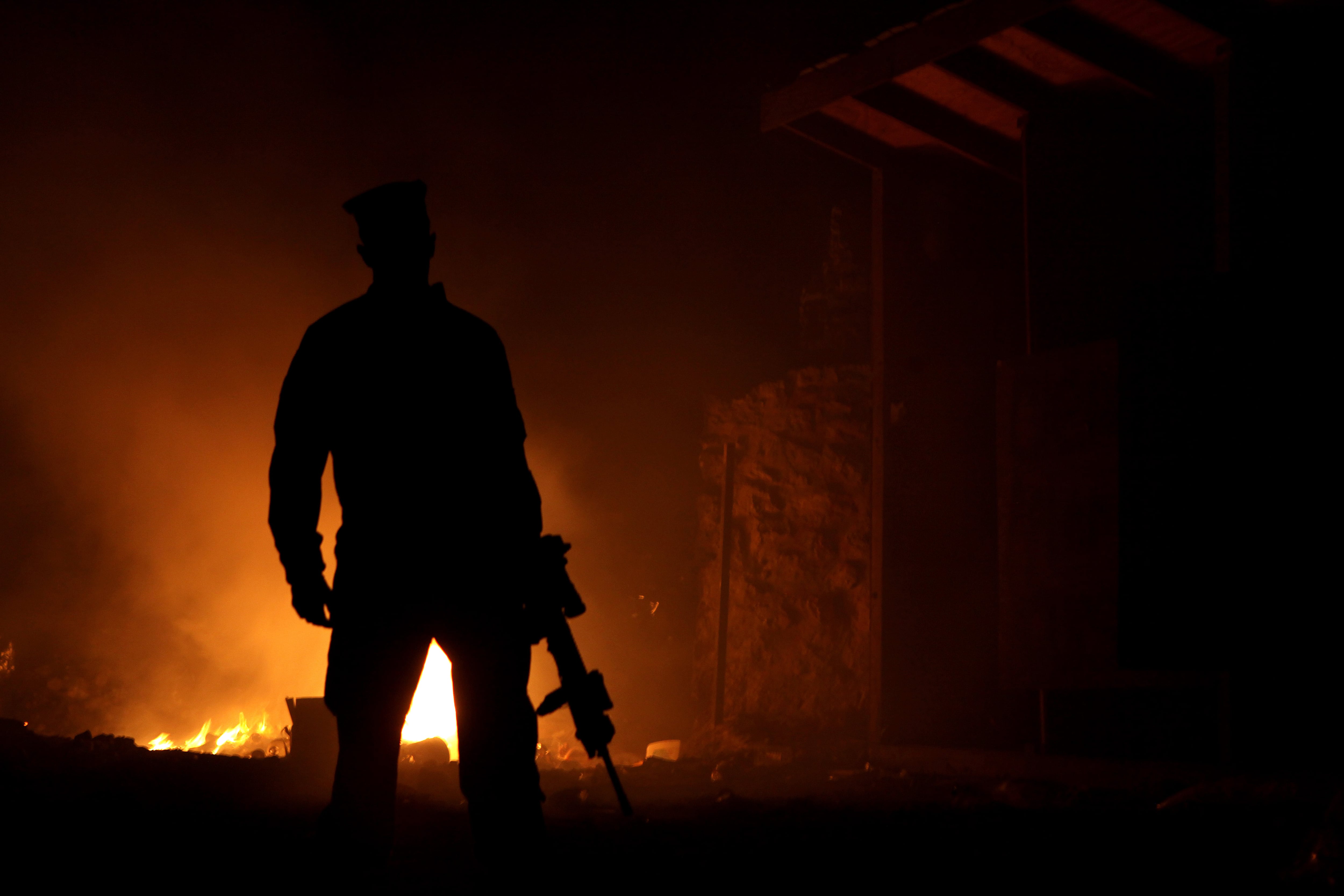Senate leaders on Wednesday announced they have reached a deal to pass sweeping military toxic exposure legislation later this summer, paving the way for millions of veterans exposed to burn pit smoke and other battlefield toxins to receive more medical care and disability benefits in coming years.
In a statement, Senate Veterans’ Affairs Committee Chairman Jon Tester, D-Mont., and ranking member Jerry Moran, R-Kansas, hailed the agreement as a framework for “the most comprehensive toxic exposure package” in American history.
They also said House leaders have already offered support for the deal, which is based largely on legislation already advanced in that chamber in March.
“For far too long, our nation’s veterans have been living with chronic illnesses as a result of exposures during their time in uniform,” Tester and Moran said. “Today, we’re taking necessary steps to right this wrong with our proposal that’ll provide veterans and their families with the health care and benefits they have earned and deserve.”
RELATED

The House plan — the Promise to Address Comprehensive Toxics Act, or PACT Act — would establish a presumption of service connection for 23 respiratory illnesses and cancers related to the smoke from burn pits, used extensively in those war zones to dispose of various types of waste, many of them toxic.
The bill also provides for new benefits for veterans who faced radiation exposure during deployments throughout the Cold War, adds hypertension and monoclonal gammopathy to the list of illnesses linked to Agent Orange exposure in the Vietnam War, and requires new medical exams for all veterans with toxic exposure claims.
As many as one in every five veterans living in America today could directly benefit from the new legislation.
Additions proposed by senators could indirectly benefit even more, but putting more money into Veterans Affairs claims processing and medical staff to reduce wait times for both services.
Specifics of the deal — including a final price tag — have not yet been released. The PACT Act advanced largely along party lines in the House in part because of the massive price tag: more than $207 billion over the next decade.
The addition of new VA staff is likely to push that figure even higher, although some of the costs will be deferred by a multi-year phase in of the new disability and medical benefits.
The measure also adds more resources for federal research on toxic exposure and creates a framework for “establishment of future presumptions of service connection related to toxic exposure,” something that Veterans Affairs officials have been working on in recent months.
Much of that work has focused on burn pits, large-scale fires used by troops in Iraq, Afghanistan and other war zones to dispose of a variety of waste.
RELATED

Advocates have blamed the toxic smoke for a host of respiratory illnesses and rare cancers among younger veterans, but scientific links between the fires and the sicknesses has been difficult because of incomplete monitoring of the air quality at the time.
Past estimates from the department have put the number of individuals exposed to burn pit smoke during the last 20 years at more than 3.5 million. But only a small fraction of that group has received disability benefits for long-term health issues, and typically only after years of paperwork and arguments with Department of Veteran Affairs claims staff.
Since VA officials began awarding benefits for a handful of respiratory conditions linked to burn pits last summer, more than 16,500 veterans have received about $36 million in disability benefits.
The presumption of exposure included in the PACT Act and the expanded list of burn pit illnesses could dramatically expand those numbers in coming years.
Advocacy groups hailed the compromise announcement as long-awaited relief for veterans and their families.
“The men and women of the U.S. Armed Forces confront health challenges of a scope and complexity that few others experience,” said Chanin Nuntavong, executive director of the American Legion.
“Despite U.S. troops being withdrawn from South Vietnam in 1973, the VA only recognized presumptive conditions associated with service in 1993. Almost 50 years later, Vietnam veterans are still fighting for the care they rightfully deserve.
“We cannot repeat these injustices by failing to provide another generation of veterans the care they need. The Honoring our PACT Act is the comprehensive legislative solution that toxic exposed veterans of multiple generations desperately need, and Congress must act swiftly to ensure its passage.”
RELATED

IAVA Executive Vice President Tom Porter said he is “greatly encouraged and optimistic” following the Senate announcement.
“This has been a top priority for IAVA and our partner organizations for years,” he said. “We will need many others to follow [Tester and Moran] and we will keep pushing until it finally passes Congress and is signed into law.”
The senators said they expect to finalize bill text in coming days, and will push for a Senate floor vote “as soon as possible.”
If the bill is amended in that process, House lawmakers will have to vote on the measure again before it can be sent to President Joe Biden to be signed into law.
On Tuesday night, during remarks before a Elizabeth Dole Foundation event, House Speaker Nancy Pelosi, D-Calif., told a crowd of veterans advocates she was optimistic that final passage of the measure would come “soon.”
During his State of the Union address earlier this year, Biden called for Congress to “pass a law to make sure veterans devastated by toxic exposures in Iraq and Afghanistan finally get the benefits and comprehensive health care they deserve.” With Wednesday’s announcement, that call is closer than ever before to becoming reality.
Leo covers Congress, Veterans Affairs and the White House for Military Times. He has covered Washington, D.C. since 2004, focusing on military personnel and veterans policies. His work has earned numerous honors, including a 2009 Polk award, a 2010 National Headliner Award, the IAVA Leadership in Journalism award and the VFW News Media award.





